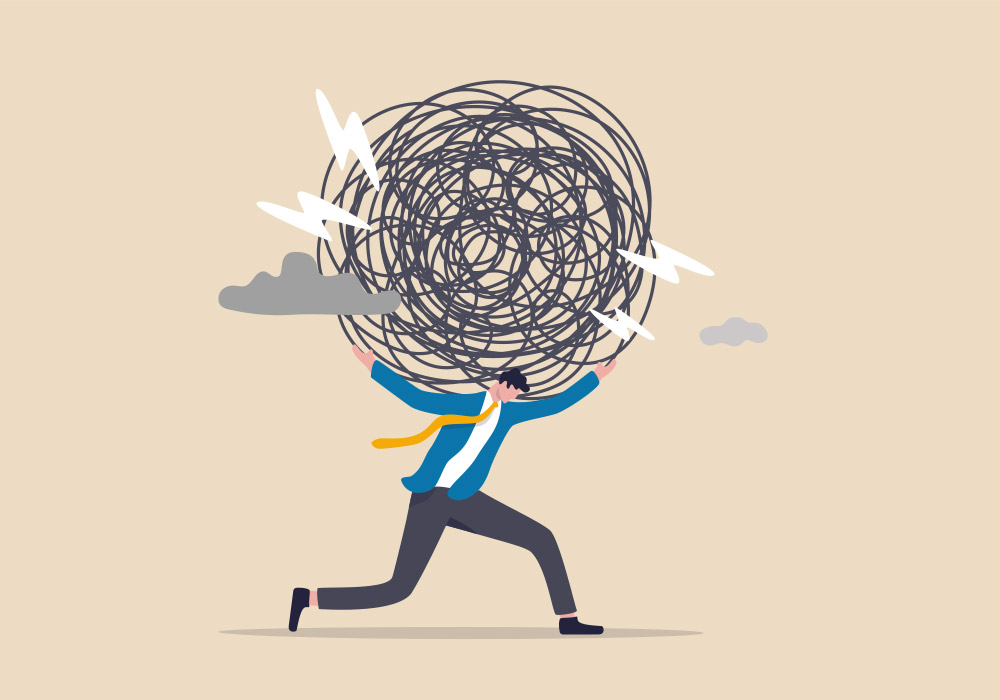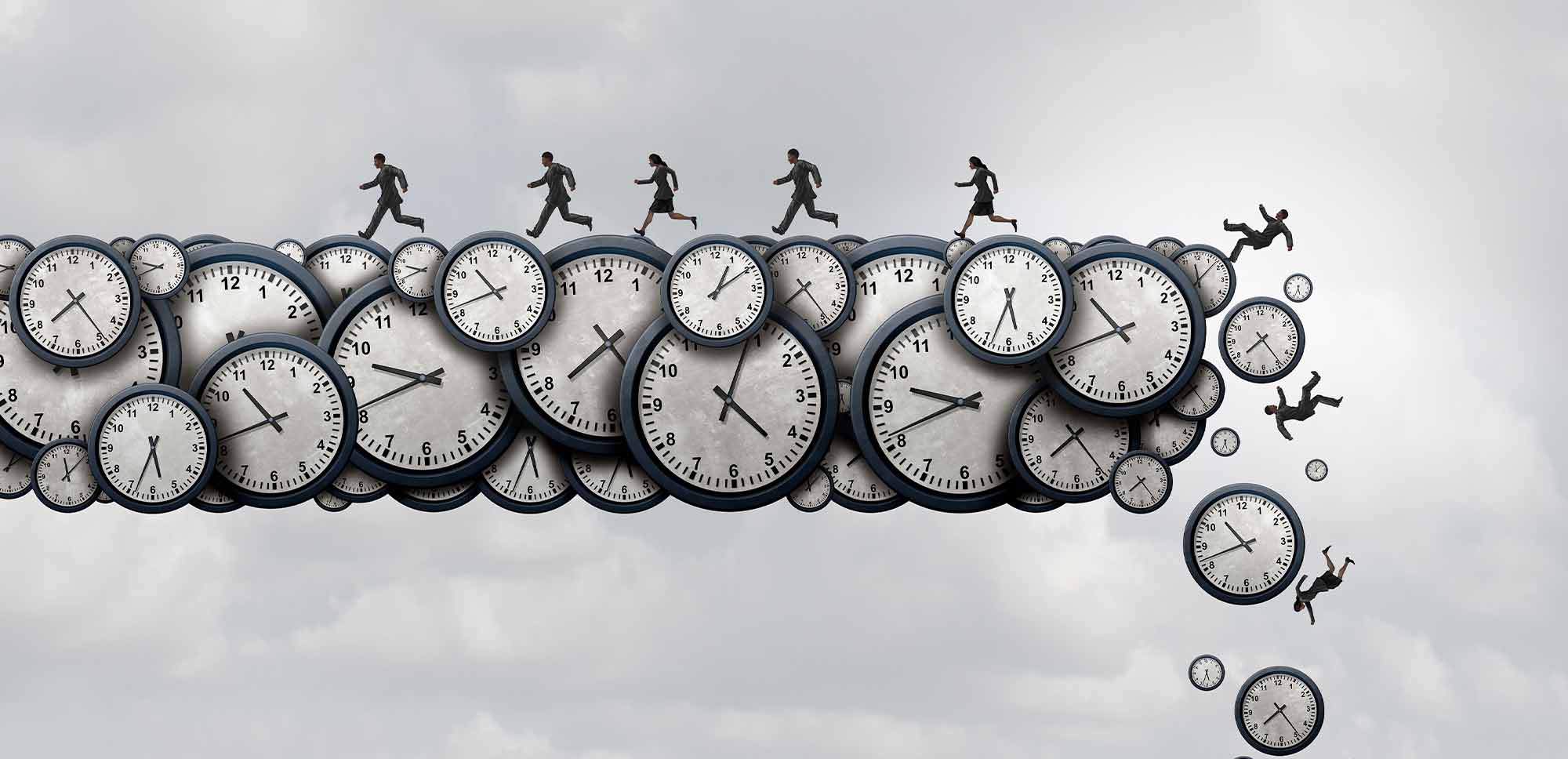What happens when we get stressed? It’s as if our brain is racing and, as fast as it’s going, we are unable to keep up with our own thoughts. Our mind gets overloaded and eventually it happens: we burn out.
The management of work-related stress is one of today’s major mental health issues. Despite increasing efforts by organisations to look after the wellbeing of their employees, there’s still room for improvement.
What will I read about in this article?
- Issues of poor work-related stress management
- The paradox of recovery
- Ideas for managing stress at work
The problems triggered by poor management of work-related stress
Data says that many workers admit to being stressed and burnt out. A combination that threatens the mental health of the workforce. In this article we discuss the environmental factors that impact on it.
We’re referring to aspects such as the environment in which we live, family and social relations, the economic situation and, of course, work.
Work-related stress has become a global health problem. The World Health Organisation already considers burnout to be a problem related to time spent at work. It’s associated with chronic stress at work, characterised by depersonalisation of tasks, emotional and physical exhaustion, and poor performance.

“Do you think you were stressed yesterday?” is the question Gallup asked in its global survey on the employment landscape. In 2021, 44% of workers answered yes. While it is true that not all said they were stressed because of work, inevitably their state of mind affected their job performance.
“44% of workers felt stressed in 2021”.
When we’re stressed, we perform worse. But we also feel less attached to the company we work for and are more willing to look for a new position in another organisation.
The paradox of recovery
According to research from the Department of Psychology at the University of Mannheim, Germany, we fall into a paradox when trying to recover from stress. According to the experts, the more tired our bodies and minds are, the less able we are to do anything to stop and rest.
For example, when work is demanding and we feel we can’t cope with it all, we make the mistake of putting in long hours trying to get it done and we don’t think about resting.
In addition, poor stress management also leads us to eat less healthily, even though proper nutrition and hydration are important to replenish energy levels. As a result, we’re even more tired to practise sport or any other activity that could help us mitigate stress.
“The more tired our bodies and minds are, the less able we are to do anything to stop and rest”.
Can we manage stress correctly?
The simplest answer to the question we pose would be this: we can rest and unwind. But it’s essential to do so in a real and effective way so that emotions, mood, energy, motivation and physical and mental health can fully recover.
The (non-existent) boundary between personal and professional life
Organisations are implementing measures that seek to care for the well-being of their employees: work-life balance policies, flexible working models, etc. But work-related stress goes beyond what happens in the physical spaces of the office.
Are you able to go home relaxed after that tense moment you had with your boss just a couple of hours ago? Can you switch off if you can’t stop thinking about the mountain of reports you have to do tomorrow? Work-life balance is a complex issue and goes far beyond whether or not you can avoid getting an email outside of your working hours.
“Work-life balance is complex and goes beyond preventing any emails from reaching you outside your working hours”.

In favour of micro-breaks
Research shows that taking short breaks of about 10 minutes during the working day has surprisingly beneficial effects on daily work stress management. Just a few minutes can be spent meditating, taking a short walk, having a coffee or interacting with colleagues. These are strategies that can improve motivation and concentration during the day.
Activities that help you steam off
Beyond the “standard” recovery activities like exercise or yoga and meditation, it might be time to try new things. Why not sign up for that kickboxing class? Or maybe it’s time to dust off that old guitar. Any activity that gets our minds focused on something other than work is welcome.
The role of the leader
As the Gallup study highlights, the figure of the leader plays a major role in how burned out or overwhelmed his or her team members are. According to the research, unfair treatment at work, an unmanageable workload, a lack of support or constant pressure from top management all lead to high stress among employees.
As we have seen in previous articles, an open and empathetic leadership style is essential for employees to carry out their day and their responsibilities effectively without having to compromise their well-being.
These are just a few recommendations that can help employees in their management of work-related stress. It’s up to organisations to also get involved in removing the obstacles that make their corporate society feel overwhelmed.
Sources:
- https://www.nature.com/articles/s41380-022-01586-8
- https://www.gallup.com/workplace/349484/state-of-the-global-workplace.aspx?thank-you-report-form=1
- https://hbr.org/2022/07/how-to-recover-from-work-stress-according-to-science


